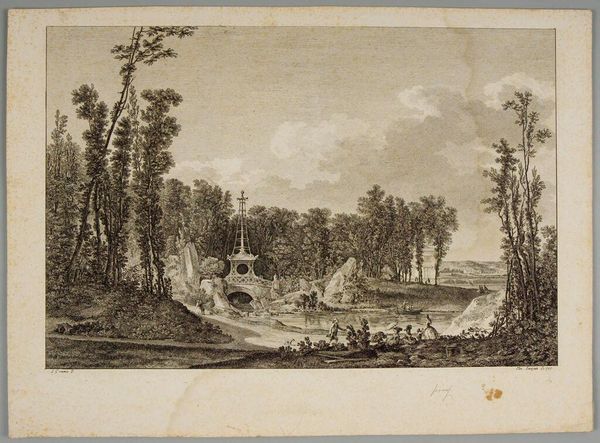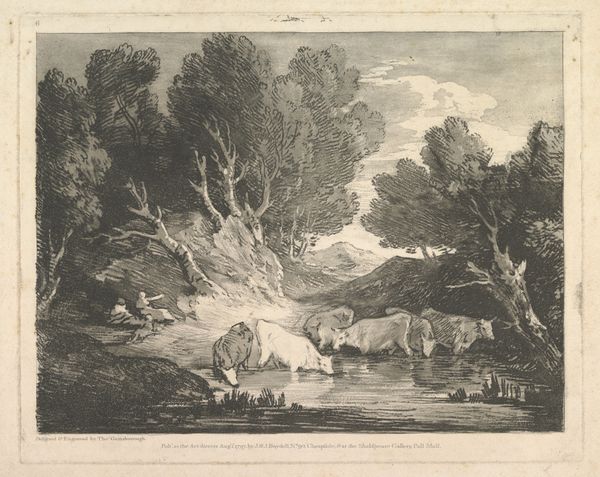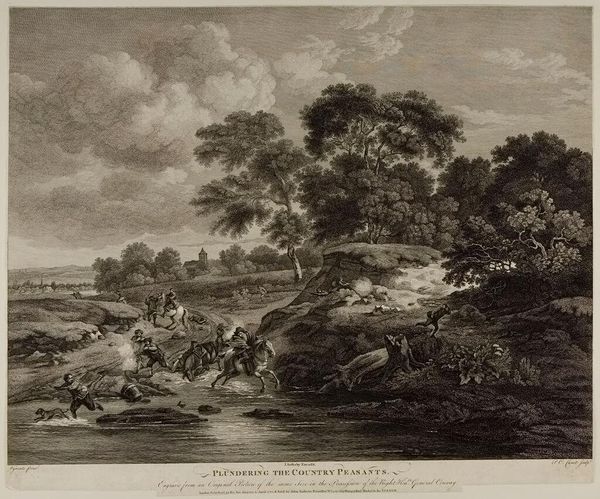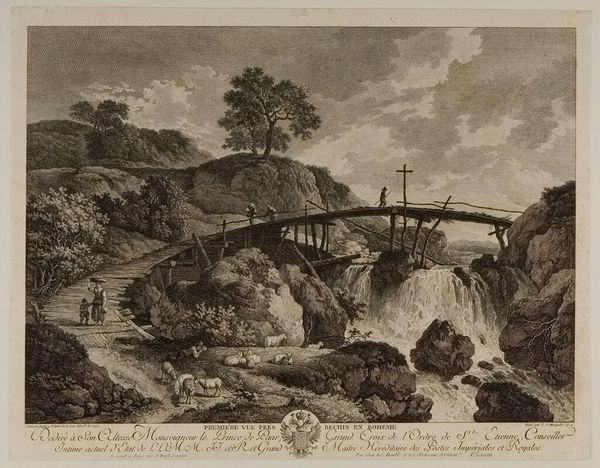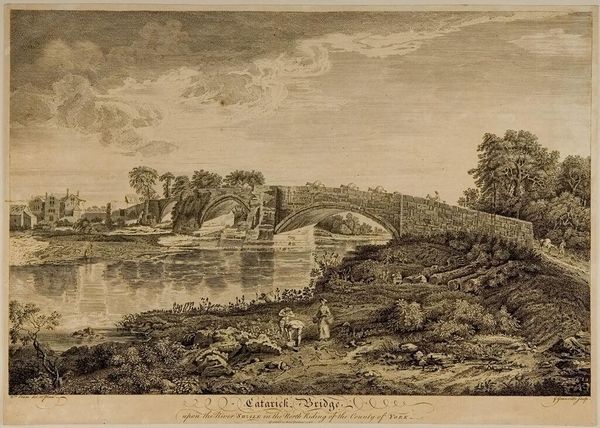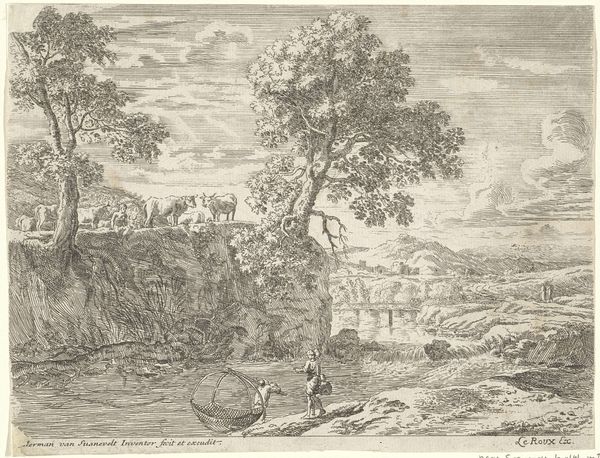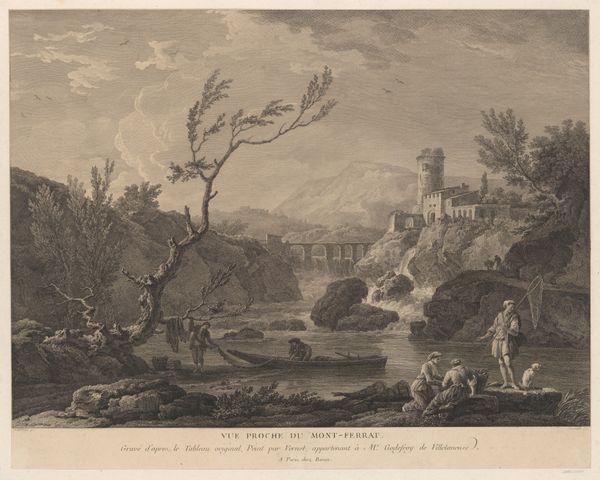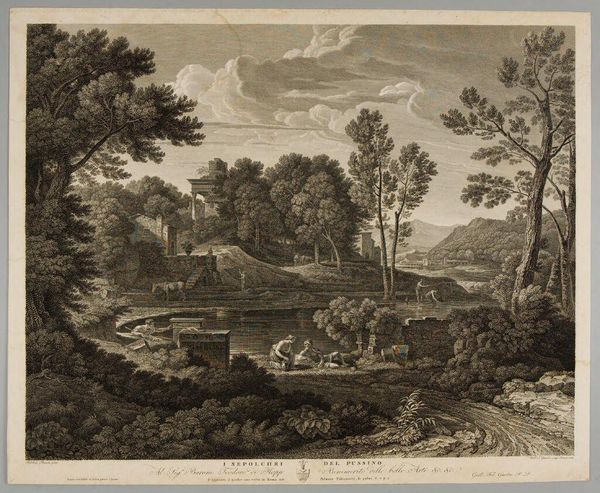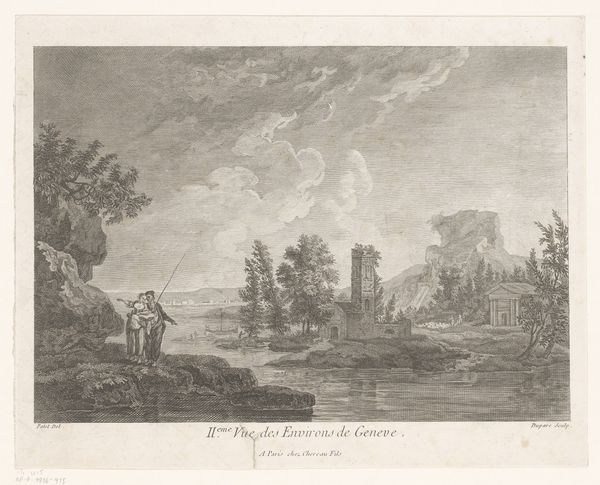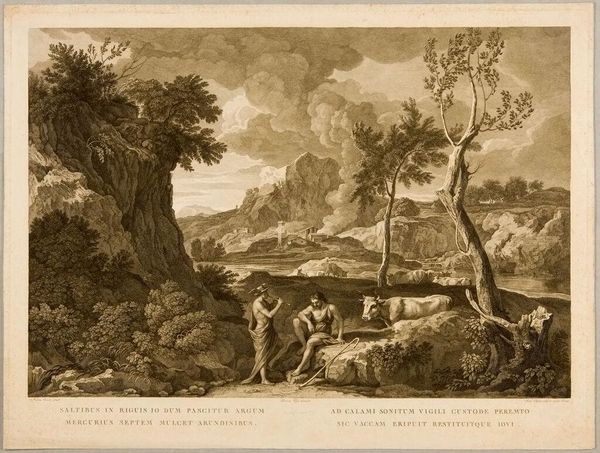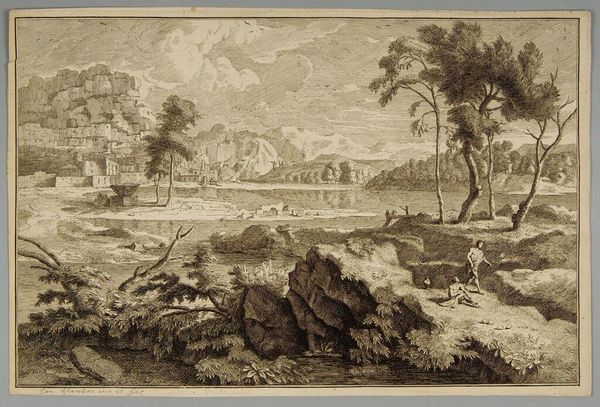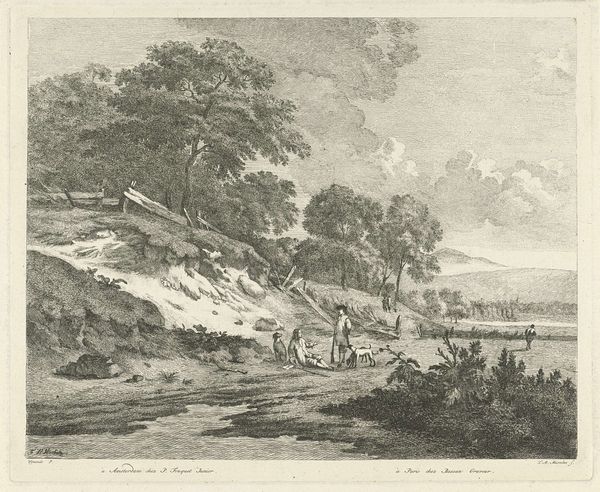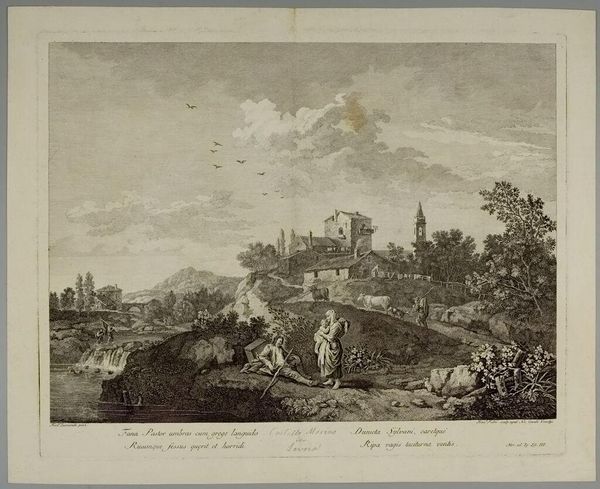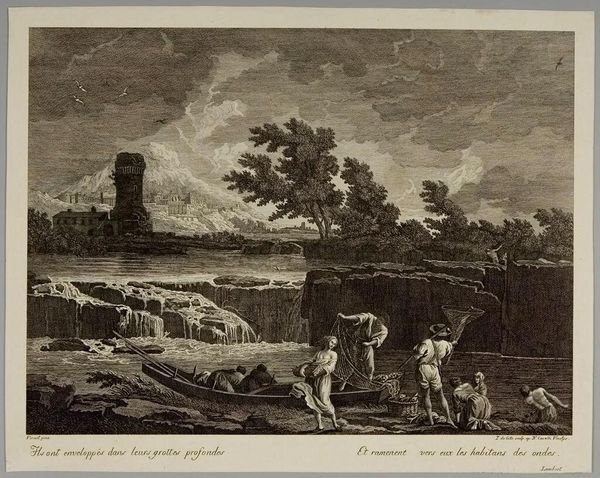
Second View of the Environs of Gaillon c. 18th century
Dimensions: Image: 22.5 Ã 32.1 cm (8 7/8 Ã 12 5/8 in.) Sheet: 27.6 Ã 35.8 cm (10 7/8 Ã 14 1/8 in.)
Copyright: CC0 1.0
Editor: This is Jean-Baptiste Racine’s "Second View of the Environs of Gaillon." There's a shepherd with their flock, a quiet landscape... what do you see in this piece? Curator: The shepherd is a powerful symbol here. Consider the archetype of the shepherd—protector, guide. Racine is drawing upon centuries of pastoral imagery, evoking ideas of simple virtue and harmony with nature. It taps into a deep cultural memory. Do you notice anything else? Editor: The ruin, perhaps? It seems so out of place in this otherwise idyllic landscape. Curator: Indeed. Ruin often symbolizes the passage of time, but it can also represent the fragility of human endeavor. Racine uses it to create a tension—the enduring power of nature versus the fleeting nature of human structures. What does that suggest to you about the artist's cultural environment? Editor: It's interesting how timeless images can speak volumes about their time. I’ll be considering the long lives of symbols moving forward.
Comments
No comments
Be the first to comment and join the conversation on the ultimate creative platform.
